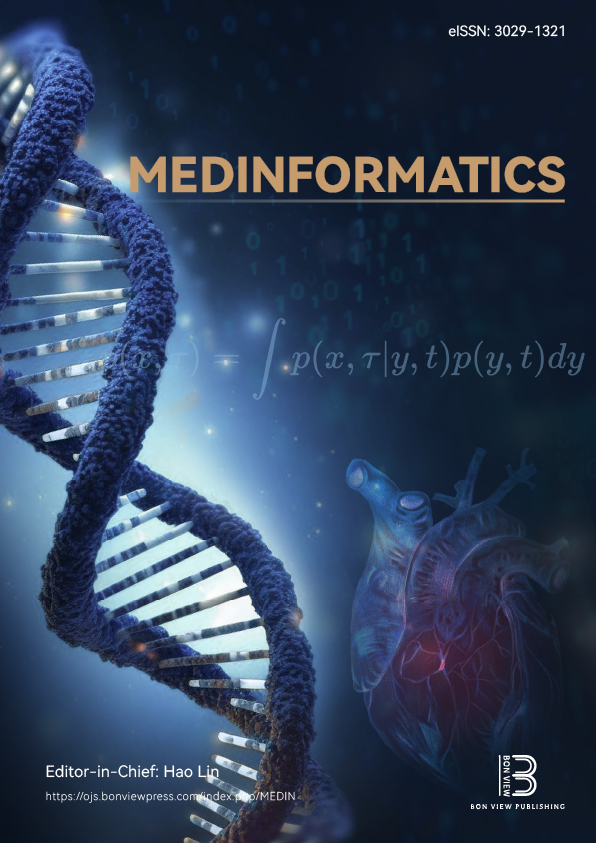Machine Learning Predicts 1-[(4-Fluorophenyl) Methyl] Indole-2,3-Dione as Drug Lead for Peptide Deformylase in Plasmodium falciparum
DOI:
https://doi.org/10.47852/bonviewMEDIN42022318Keywords:
Target2Scan, molecular docking, malaria, peptide deformylase, Plasmodium falciparum, BLASTAbstract
Malaria continues to be a serious illness for world health. Deadly parasites that cause malaria infect female Anopheles mosquitoes, which then bite humans, acting as the disease's vector. Since Plasmodium falciparum is the deadliest of the five Plasmodium species and research indicates that medicines for malaria are increasingly revealing drug-resistance mechanisms, it is imperative that new and effective medications be developed. This project aims to identify and produce a novel therapeutic lead against a P. falciparum target that has been validated. Target2Scan, a programmed tool, was employed in this investigation to find potential therapeutic targets for P. falciparum peptide deformylase (PDF). After the tool received the target signature, it ran a Basic Local Alignment Search Tool (BLAST) methodology to find targets that resembled PDF. To ascertain the binding affinities of protein–ligand complexes, molecular docking was performed using PyRx and CBDock. Of the 12,561 compounds produced, 11,304 were used as the training set and 1,256 as the test set. Six ligands were produced by machine learning as potential therapeutic leads, and using molecular docking, 1-[(4-fluorophenyl) methyl] indole-2,3-dione showed the greatest binding effect on PDF when compared to 5-chloro-1-(2-phenylethyl) indole-2,3-dione. The higher binding affinity of 1-[(4-fluorophenyl) methyl] indole-2,3-dione over 5-chloro-1-(2-phenylethyl) indole-2,3-dione and other ligands on PDF suggests that it has the ability to suppress P. falciparum PDF activity.
Received: 17 December 2023 | Revised: 29 May 2024 | Accepted: 12 July 2024
Conflicts of Interest
The authors declare that they have no conflicts of interest to this work.
Data Availability Statement
The data that support this work are available upon reasonable request to the corresponding author.
Author Contribution Statement
Omiyale Olumakinde Charles: Conceptualization, Investigation, Supervision. Zainab Hassan: Methodology, Investigation. Okunbi Favour Onasokhare: Validation, Investigation. Aisha Bello: Investigation, Writing - original draft, Writing - review & editing. Oluwafemi F. Olaiyapo: Investigation, Resources. Blessing Ojajuni: Software, Investigation, Data curation. Sulaimon Olajuwon Abdul: Investigation, Writing - review & editing. Roseline Boboye: Investigation, Writing - review & editing. Martin Egbulefu: Formal analysis, Investigation, Data curation. Chiziterem Jaachinma Ezeano: Formal analysis, Investigation. Ahmed Rufai Nurudeen: Investigation, Visualization. Rasaq Awosemo: Investigation, Project administration. Marian Mark: Investigation, Resources.
Downloads
Published
Issue
Section
License
Copyright (c) 2024 Authors

This work is licensed under a Creative Commons Attribution 4.0 International License.


